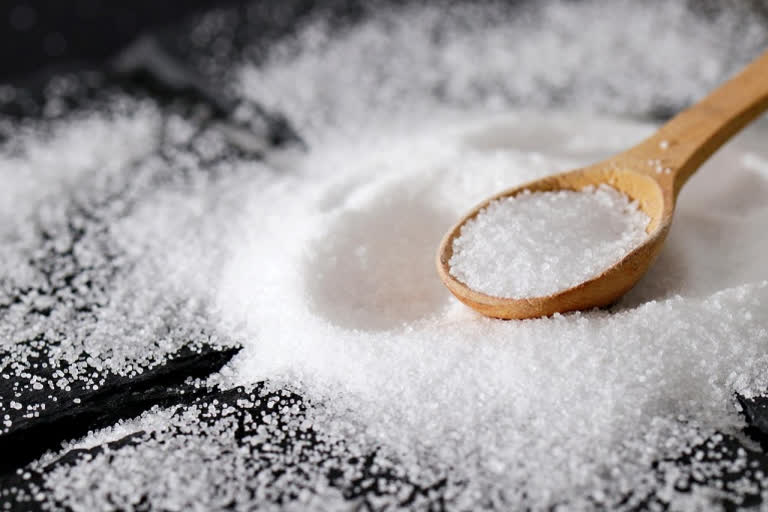Hyderabad: Most people know that iodine is essential for our body, but still, people are unaware of the appropriate amount of it for our body and the problems that occur due to lack of it. Every year a large number of people around the world, especially children, become victims of many diseases and disorders due to the deficiency of iodine. Global Iodine Deficiency Disorders Prevention Day is observed on October 21st all over the world to make the general public aware of how important iodine is for our health and physical development and how its deficiency can be harmful.
According to the World Health Organization, at present, about a third of the world's population is at risk of getting diseases caused by iodine deficiency. Although many types of awareness campaigns are being run around the world about the benefits of iodine for health and diseases caused by its deficiency, despite this, iodine deficiency is still present in about 54 countries of the world. Global Iodine Deficiency Disorders Prevention Day is celebrated every year on October 21st to make people all over the world aware of the diseases caused by iodine deficiency and to ensure the availability of iodized salt in every household.
Iodine is actually a micronutrient that is essential for the development of our body and for the smooth functioning of many systems and functions of the body. It is very important not only for our physical but also for our mental development. We get iodine from salt, but it is also very important to understand that not only lack of iodine, but excessive intake of it is also harmful to the body. That's why doctors always recommend the consumption of salt in a balanced amount.
Especially for pregnant women and children, the intake of iodine in the right and the balanced amount is considered very important. Iodine along with all kinds of nutrition is very important for the proper physical and mental development of children. Due to iodine, the development process of the body remains smooth, but it is also very important for the development of the mind of children. Iodine is also considered an essential element for the thyroid process in the body.
If there is a deficiency of iodine in the body of pregnant women, then problems may arise in the development of the child in their womb. Iodine deficiency in women can sometimes lead to miscarriage, stillbirth, and even dwarfism in the child. According to statistics, iodine deficiency is responsible for about 6 out of 100 abortions.
Also read: World Osteoporosis Day 2022: 'Step Up for Bone Health'
Iodine deficiency in the body can lead not only to developmental but also to many other types of disorders or diseases. Some of these are as follows:
- Goitre disease.
- Enlargement of the thyroid gland or hypothyroidism.
- Stopping the physical and mental development of children.
- Nerves and muscle stiffness.
- Mental disability.
- Dwarfism.
- Vision problems.
- Speech problems and deafness.
- Nail, skin, and hair disorders.
The World Health Organization has been conducting various programs under the "National Iodine Deficiency Programme" since the 1980s with the aim of making the general public aware of the diseases and problems caused by iodine deficiency. UNICEF and the "International Council for Control of Iodine Deficiency Disorders" jointly run many awareness programs internationally.
Statistics show that due to this campaign, the availability of iodized salt has been ensured in about 66% of households so far. For many years, many campaigns have been run by the Government of India regarding iodine deficiency. First realizing the complexity of this problem, the Government of India started the "National Goitre Control Program" in 1962. Whose name was changed in 1992 to "National Iodine Deficiency Disorders Control Program".
Under this program, the focus is on providing iodised salt to the general public, conducting surveys on iodine deficiency diseases, monitoring iodised salt in laboratories and related health, education, awareness, and publicity. Apart from this, in order to ensure the use of iodized salt in the household, a notice was also issued by the Government of India under the Prevention of Food Adulteration Act 1954, banning the sale of non-iodized salt from May 2006.



